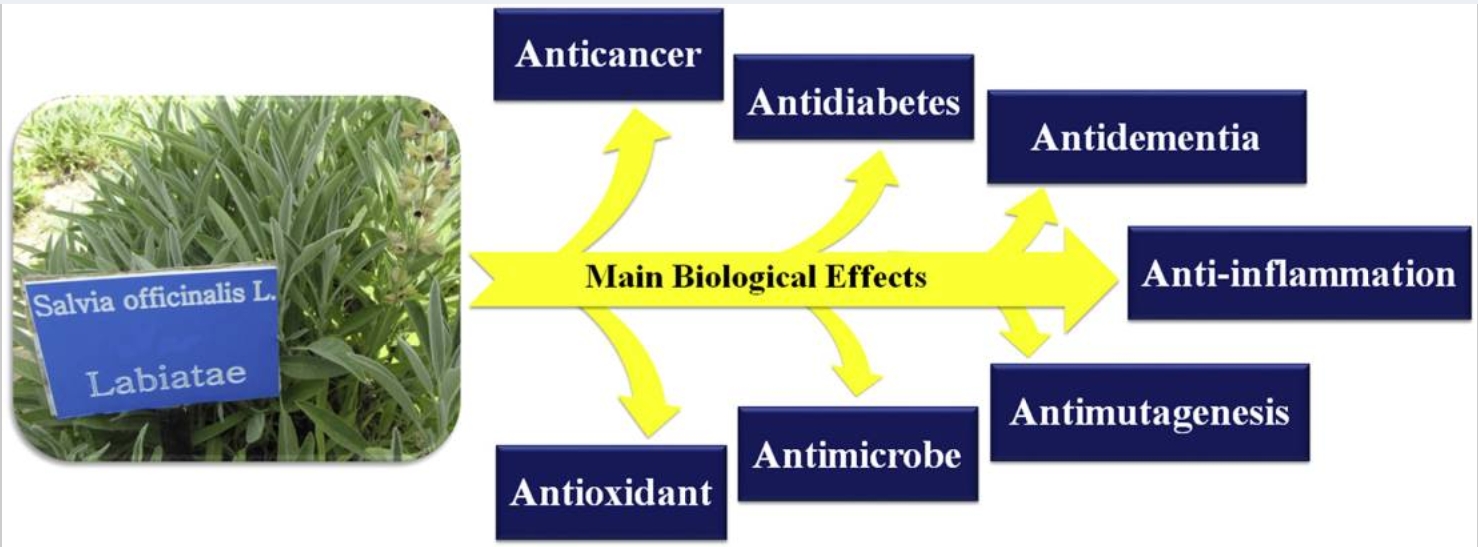Ghorbani Ahmad, Esmaeilizadeh Mahdi
Journal of traditional and complementary medicine, 2017
Abstract
Salvia officinalis (Sage) is a plant in the family of Labiatae/Lamiaceae. It is native to Middle East and Mediterranean areas, but today has been naturalized throughout the world. In folk medicine, S. officinalis has been used for the treatment of different kinds of disorders including seizure, ulcers, gout, rheumatism, inflammation, dizziness, tremor, paralysis, diarrhea, and hyperglycemia. In recent years, this plant has been a subject of intensive studies to document its traditional use and to find new biological effects. These studies have revealed a wide range of pharmacological activities for S. officinalis. Present review highlights the up-to-date information on the pharmacological findings that have been frequently reported for S. officinalis. These findings include anticancer, anti-inflammatory, antinociceptive, antioxidant, antimicrobial, antimutagenic, antidementia, hypoglycemic, and hypolipidemic effects. Also, chemical constituents responsible for pharmacological effects of S. officinalis and the clinical studies on this plant are presented and discussed.
Keywords
Anticancer; Antimutagenic; Flavonoids; Sage; Salvia officinalis.
Figures

| PMID: | 29034191 |
|---|---|
| PMCID (Free PMC Article): | PMC5634728 |
| DOI: | 10.1016/j.jtcme.2016.12.014 |
| Category: | General properties of Salvia Officinalis |
Articles similar to "Pharmacological properties of Salvia officinalis and its components."
- The properties of Salvia Officinalis: Current Advances on the Extraction and Identification of Bioactive Components of Sage (Salvia spp.). (Common sage (Salvia spp...)
Previous article
Pharmacognostic research on Viola tricolor L. (Violaceae).

























































